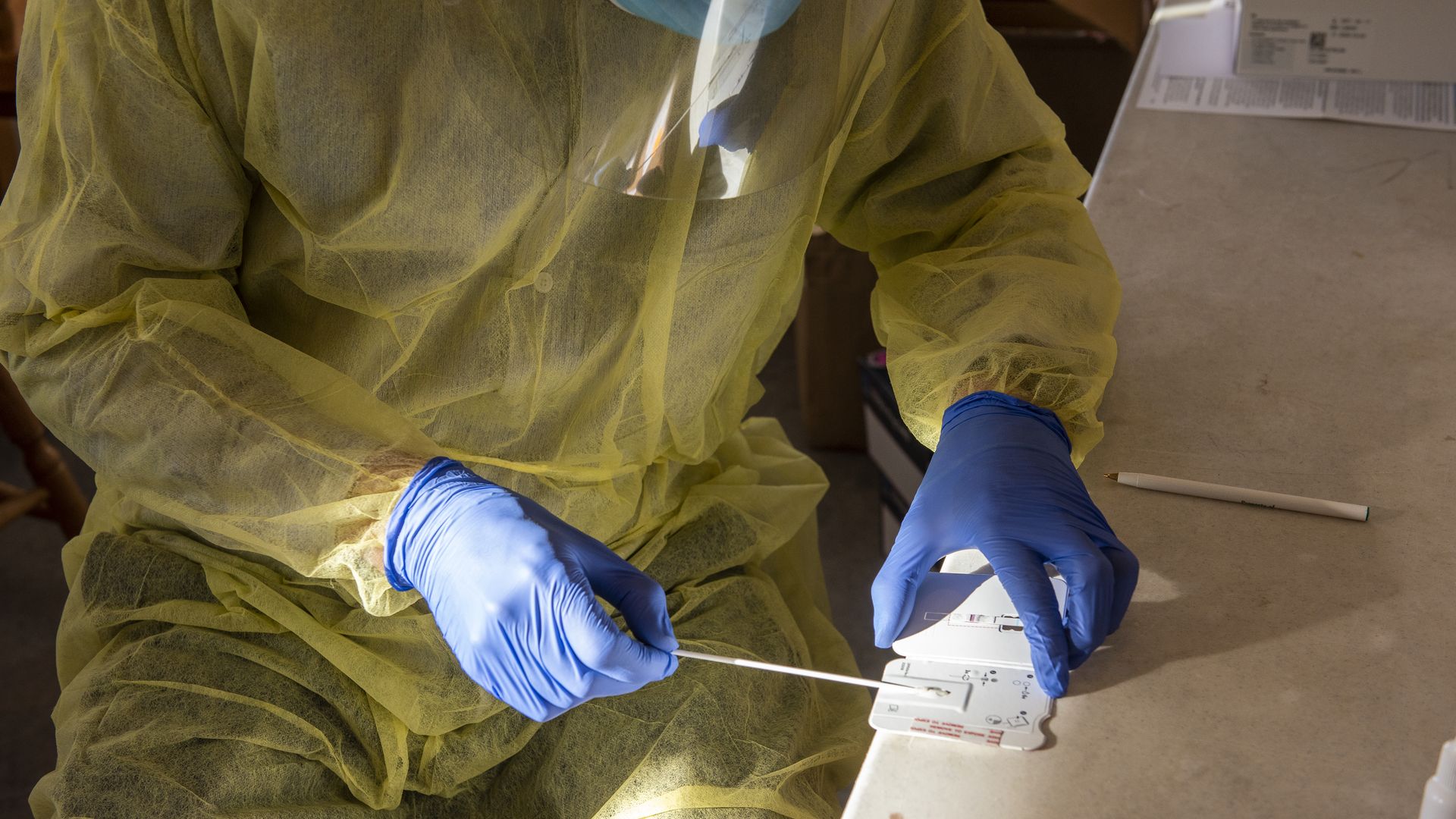Feb 15, 2021 - Health
WSJ: 32 million rapid coronavirus tests go unused
Add Axios as your preferred source to
see more of our stories on Google.

Park County Health Department Director Alex Baukus uses the Abbot BinaxNOW rapid COVID-19 test in Livingston, Montana on Dec. 7. Photo: William Campbell/Getty Images
